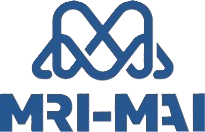onMRI — AI-powered Objective MRI Analysis for Quantifiable Musculoskeletal Imaging
Authors: Paul Y. Lee1,2, Tanvi Verma1 — 1 MSK Doctors, UK · 2 United Lincolnshire Hospitals NHS Trust, UK

Magnetic Resonance Imaging (MRI) has long been a mainstay in musculoskeletal diagnostics, gold-standard for its high soft-tissue contrast and capacity to visualise cartilage, ligaments and menisci. Yet, the standard workflow remains largely qualitative: radiologists or clinicians interpret images based on experience, pattern recognition and subjective judgement. This introduces variability, both between different readers and even within the same reader over time — that complicates efforts to compare findings across time, individuals or centres. In many research and clinical settings, the inability to reliably detect subtle structural changes discourages the adoption of MRI as a true quantitative biomarker tool.
To address these challenges, onMRI offers an AI-powered approach that transforms routine MRI scans into standardised, numeric biomarkers. Through automated segmentation, the system delineates anatomical compartments (e.g. cartilage, menisci) with high precision and reproducibility. These segmented structures are then spatially aligned enabling consistent comparison across scans or across a cohort.
The presentation \"onMRI — AI-powered Objective MRI Analysis for Quantifiable Musculoskeletal Imaging\" was delivered at the 2nd European Symposium on Interprofessional Collaboration on Osteoarthritis Management, Porto, Portugal, 2025. One of the key forums for advancing imaging, biomarker and therapeutic innovation in osteoarthritis and joint health. This technology gained visibility among a multidisciplinary audience of clinicians, imaging scientists and policy-makers.
Office
Subscribe to our Newsletter
We deliver high quality blog posts written by professionals weekly. And we promise no spam.
© 2025 MAI Motion. All Rights Reserved.


